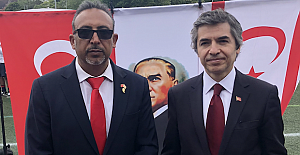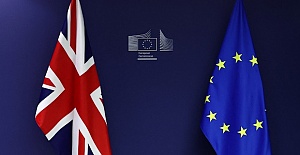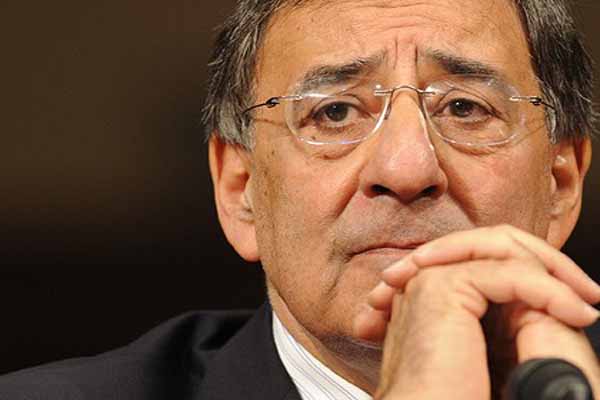The US defence secretary has told Nato allies the US will leave between 8,000 and 12,000 troops in Afghanistan after 2014, when combat ends, according to a senior government official. Thomas de Maizière, the German defence minister, said Leon Panetta had informed him of the numbers. US officials have yet to say publicly how many American troops will remain in Afghanistan after 2014. Panetta said earlier on Friday that US officials were planning to leave troops in all sectors of the country, as well as in Kabul. Pentagon officials said the military had mapped out plans to carry on its mission of training and advising the Afghan forces and also leave a small counterterrorism force to battle insurgents.
The Nato secretary-general, Anders Fogh Rasmussen, said no decision had been made on the size of the post-2014 international force. Speaking to reporters at the close of the meeting of Nato defence ministers, Panetta noted that the US president was strongly considering a plan to maintain 352,000 Afghan troops for the next five years.
That would be part of an effort to promote security and stability and help persuade Afghanistan that America and its allies would not abandon it once combat troops leave, senior alliance officials said on Thursday. Nato officials are also widely considering that option. Such a change, if Nato endorses it, could increase the costs to the US and allies by more than $2bn a year, at a time when most are struggling with budget cuts and fiscal woes. Last May, Nato agreed to underwrite an Afghan force of about 230,000, at a cost of about $4.1bn a year after 2014. It will cost about $6.5bn this year to fund the current Afghan force of 352,000, and the US is providing about $5.7bn of that.
Maintaining the larger troop strength could bolster the confidence of the Afghan forces and make it clear Nato was committed to an enduring relationship with Afghanistan, a senior Nato official said.
In private meetings with other defence ministers, Panetta warned allies that Washington's fiscal impasse would have repercussions abroad, as impending budget cuts forced the military to scale back its training and presence overseas.
Many of his meetings, however, centred on the plans to wind down the war in Afghanistan, including the withdrawal of 34,000 US troops over the next year and the transfer of security responsibilities to the Afghan forces.
According to an Obama administration official, the Pentagon plans to reduce the number of US forces in Afghanistan to about 60,500 by the end of May; then to 52,500 by November, keeping a relatively stable number of troops there during the peak fighting season. The sharpest cuts in US troop strength will come over the winter months as the remaining 20,500 leave after the main fighting season. There are about 66,000 US troops in Afghanistan.
Panetta acknowledged those ranges of numbers on Friday, but also added that the US would maintain the 34,000 through the Afghan elections, then withdraw the final combat troops towards the end of 2014.
The administration officials spoke on condition of anonymity because they were not authorised to discuss the numbers publicly. The trip was Panetta's fifth to Brussels for a Nato meeting – a journey he never intended to take. Expectations were that Chuck Hagel, a former Republican senator from Nebraska, would be confirmed by the Senate last week to succeed Panetta and that Hagel would be travelling to the meeting.
Hagel's nomination stalled, however, as it got caught up in senators' complaints about the attack on the US diplomatic mission in Benghazi, Libya, which killed for Americans, including the ambassador, Chris Stevens.


 Margaret Greer has been sworn in as the new Mayor of Enfield
Margaret Greer has been sworn in as the new Mayor of Enfield Prime Minister Keir Starmer's 2025 Easter message
Prime Minister Keir Starmer's 2025 Easter message After Nesil Caliskan a by-election will be held in Jubilee ward in Enfield
After Nesil Caliskan a by-election will be held in Jubilee ward in Enfield Publishing the analysis, Labour’s Cllr Ergin Erbil said Everybody in Enfield deserves basic rights
Publishing the analysis, Labour’s Cllr Ergin Erbil said Everybody in Enfield deserves basic rights Great respect for Ataturk and enthusiastic youth celebration in England
Great respect for Ataturk and enthusiastic youth celebration in England UK AMBASSADOR TO TURKEY VISITS FETHIYE
UK AMBASSADOR TO TURKEY VISITS FETHIYE Journalists from Europe held the Turkish Media Workshop in Skopje
Journalists from Europe held the Turkish Media Workshop in Skopje The European Union called on Turkey to uphold democratic values
The European Union called on Turkey to uphold democratic values Fenerbahce is the EuroLeague champion
Fenerbahce is the EuroLeague champion Brennan Johnson’s first-half strike seals London side’s win
Brennan Johnson’s first-half strike seals London side’s win The 'Prince of Paris' has impressed in his first EuroLeague season
The 'Prince of Paris' has impressed in his first EuroLeague season Saran Media And Euroleague Basketball Extend Media Rights Partnership for Four More Years
Saran Media And Euroleague Basketball Extend Media Rights Partnership for Four More Years UK, EU reach landmark agreement on food, fishing ahead of London summit
UK, EU reach landmark agreement on food, fishing ahead of London summit Perry Scott to become Enfield Council Chief Executive
Perry Scott to become Enfield Council Chief Executive Residents welcomed back to Edmonton Leisure Centre
Residents welcomed back to Edmonton Leisure Centre Barclays has become the biggest UK lender so far to cut mortgage rates
Barclays has become the biggest UK lender so far to cut mortgage rates















